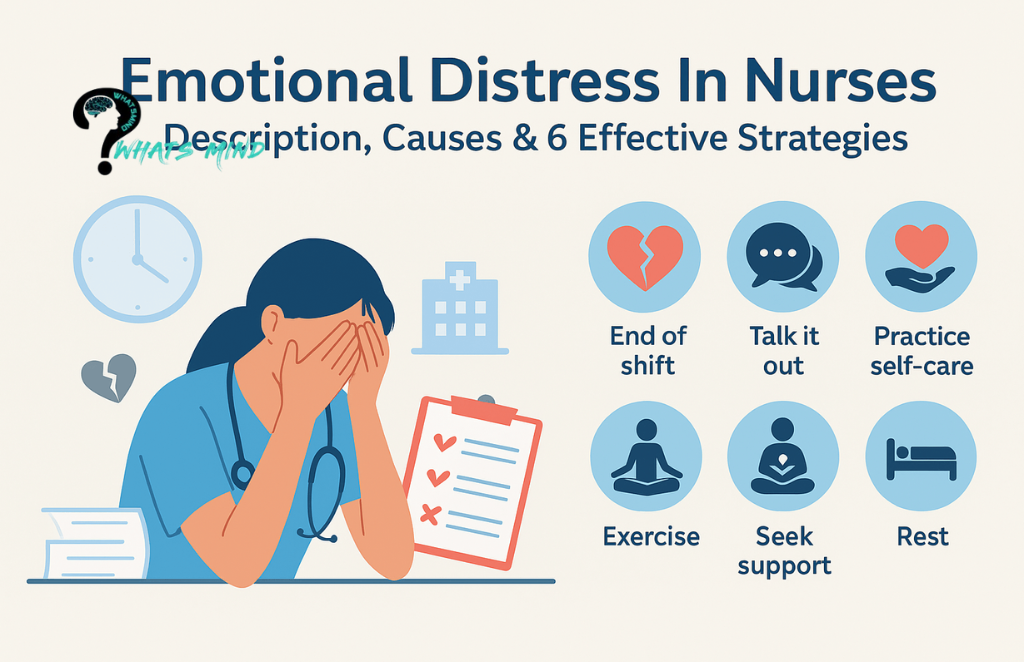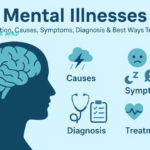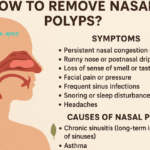Aren’t the nurses getting the brunt of high-intensity roles? They definitely do and the emotional distress is something that takes a toll on their physical and mental health. Healthcare organizations were deeply affected when the pandemic hit as it demanded high labor costs, workforce shortages, and staff burnout where nursing burnout originates.
Even after the pandemic has gone, nurses still suffer through inhumane shift hours and increased workloads with less work-life balance.
In this guide, we will run through what us emotional distress in nurses, the factors that prove to be challenging for nurses, and the strategies to best tackle high nursing burnout.
What Is Emotional Distress In Nurses?
Is it synonymous with nurse burnout? Yes, and it’s not something specified for registered nurses only, even the burnout can be experienced by any professional despite the career but in some professions, it seems to be quite prevalent and nursing is counted to be one of them.
Burnout is defined as extreme mental, physical, and exhaustion that is caused due chronic workplace stressors. The profession demands a lot of responsibilities including long hours of shifts and, a high workload that takes a toll on a nurse’s overall well-being.
Causes Of Emotional Distress In Nurses
The nursing profession isn’t just a bed of roses, in fact, the excessive workload isn’t something you can take lightly at all. It’s exhausting, particularly because of several factors that pile up and ultimately put nurses’ physical and mental health at risk.
The emotional distress in nurses is usually caused due to some underlying causes, therefore it’s suggested to identify them in the first place and treat these originating causes, such as:
- Having High-level expertise is essential in nursing but it comes with demands for technical knowledge and skills which become cognitively exhausting with little to no chance of tuning out.
- Irrespective of exhausting Duties, the nursing profession is also time-consuming, nurses spend abundant time which stretches to long hours on foot with limited breaks, leading to physical and mental taxing.
- It’s essential that the nurse works in a close-knit network with other physicians and staff which builds a rift as people from different backgrounds come together and undoubtedly cause frustrations and tension.
- They have to deal with the mortality of patients and have to deal with bereavement which causes nurses emotional distress.
- Communicating matters with patients’ families is quite challenging as explaining diagnosis and treatment requires empathy and it can be stressful.
- Other challenges might be delayed salaries, poor work-life balance, and conflicting matters with supervisors, managers, and other colleagues.
6 Strategies Nurses Can Prevent Emotional Distress
The emotional distress in nurses’ aja burnout can be treated if addressed timely. In medical setups, reducing the rate of burnout prevents the emotional stress taking on employees, even patients, and has an overall negative impression.
Nurse leaders must take up the responsibility to lower nurse burnout and even nurses themselves can take up therapeutic measures to bring self-care.
- Advocate For Humane Schedules
The emotional distress among nurses originates due to prolonged hours of working, with shift time of 12 hours if it’s carried on for regular days, it becomes extremely tiring.
Nurse managers must create humane schedules that let nurses work a maximum of 9 hours.
Nurses should themselves engage in their scheduling as it is said that 55% of women with the opinion in their scheduling are less fatigued, and 60% said they can improve their work-life balance by managing their schedules.
As a nurse, you should be more involved in the healthcare setup which is more lenient with its employees treat them well, and let their nurses maintain a good work-life balance.
Although self-scheduling is good and all but nurses should engage with staffing offices to design schedules that work for everyone.
- Take Your Healthy Fuel Daily
As the old saying goes, ‘Doctor heals thyself’, and can be used for all healthcare professionals including nurses. Despite the fact nurses can fend off for themselves better than other people but still inhumane schedules, prolonged duty take and worsened habits developed from their tins in nursing school can put their personal health at risk, but it’s nothing that can’t be dealt with resilience and determination.

Plan your snacks and healthy meals ahead of time as this taxing profession requires some healthy fuel to manage emotional distress. Burnout requires nurses to avoid consuming low-quality food.
- Take Regular Breaks
Make sure you are getting regular vacations which help you to unwind the emotional distress and a change’d scenery relaxes you.
Even nursing institutions make sure a vacation day policy is in place so that their staff can recharge themselves and it enhances job satisfaction and reduces the nursing turnover ratio.
- Choose Workplace With Lowest Nurse-To-Patient Ratio
What matters the most to tune out this emotional distress? Definitely your workplace, choose the place where the nurse-to-patient ratio is less.
The Journal of American Medical Association (JAMA) has associated high nurse turnover with nurse job dissatisfaction and a lot of nurses complained of nurse burnout.
A high nurse-to-patient ratio is equivalent to increased emotional distress among staff.

It’s obvious the more patients there are, the more nurses’ time will be spent among them which makes this empathetic duty of caring for patients mire monotonous and stressful, so be extra careful to choose a hospital with a lower ratio of nurses to patient to avoid nurse burnout even before you have stepped foot into the threshold of the hospital even for the first shift.
- Incorporate ‘Brain Dumping’ To Relieve Stress
Many of the nurses complain that emotional distress from the excessive workload causes turmoil in their daily lives as well. How do you get through that? Here’s a nurse’s strategy to bring forth brain dumping. The process involves setting a timer and after coming from work writing all the tormenting stuff and when the timer goes off ripping the page to shreds without even reading it.
Reading enhances stress and ripping it off sheds so many worries of a person and that’s how it’s possible to keep a good work-life balance by not bringing emotional distress caused by work to home.
- Engage In A Supportive Nursing Network
Nothing better than having people who root for you no matter what? That’s what I’ll suggest to get rid of emotional distress being in sync with a nursing network for better support.
Although family members, friends, and loved ones sympathize with you and give you valuable advice, nothing beats sharing the workplace drama, worries, and victories with fellow nurses.
The founder of The Business of Nursing, Amelia Roberts said,
“I wish I understood that having a network of professional support, outside of my job, is not an option.”

The job description of nurses is stressful itself, as they have to deal with patients’ deaths, and sometimes the diagnoses of some patients take a toll on them.
Therefore collaborating with people from your own profession brings another level of comfort which relieves you and having a good nursing network is definitely a path for growth and career aspirations.
Bottom-line
In conclusion, the nursing profession is not easy and the accompanying emotional distress is no joke. If you plan to pursue it and are already pursuing it, then make yourself well prepared ahead of time by recognizing stressors and how to cope with nursing burnout.
If you are already aware of burnout’s causes and symptoms and understand how it could affect you if not treated timely you will face stress but treating it effectively brings you the highest patient care quality.
Although it’s no surprise nurses undergo unrealistic working hours and standards and are still expected to be empathetic towards patients and honor their boundaries, prioritizing your own well-being is crucial which is possible by connecting to a like-minded people network. Being strict about nutrient nutrient-dense diet, jotting down worries and then shredding them off, taking breaks, and self-scheduling your working hours.
Give it a must-read to understand coping methods adopted by nurses. Are you a nurse and do you plan to be one, share how you will cope with stress.
FAQs on Emotional Distress
What are the five signs of emotional distress?
You are becoming aggressive without any reason, sleeping too much or too less, tiredness, unexpected waves of sadness, detachment from people and things, and this urge to remain busy all the time.
What are the emotional stress of nurses?
The common emotions nurses goes through while on duty are anxiety, depression, and frustration besides working in an understaffed department, these are common stressors faced by them regularly.
You may like to read about:
For more information, visit Whatsmnid.com















